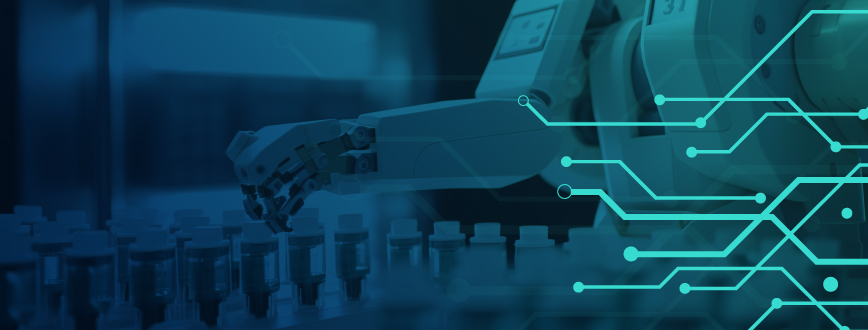In the dynamic pharmaceutical industry, where the intersection of biological systems and vast amounts of data can make drug development hectic, AI has the potential to revolutionize drug discovery. AI can interpret complex biological data and streamline the drug development process, bringing about significant advancements in this field.
This transformative technology not only expedites the drug development process but also facilitates the development of personalized medicines customized to individual patient requirements. With AI, the vision of efficiently bringing a greater number of drugs to the market is becoming a tangible reality.
In this blog, we look at the ways AI is making its mark in different facts of drug discovery.
How does AI accelerate drug development?
AI involvement and augmentation in drug discovery techniques like machine learning enable more efficient and accurate analysis of large data. The successful deep learning to predict the efficacy of the drug component with high accuracy has astounded the chaos. Using AI potentiality holds remarkable advancements in the pharma sector.
AI in drug development
Here are some ways AI is making its mark –
- Earmark identification and validation
Identifying the odds of finding a new drug, identifying biological molecular structures, and conducting validation experiments to show the appropriate results is imperative. The AI involvement in pharmaceutical company databases manages large volumes of data to sort, filter, and analyze the information, which is very time-consuming even with automation and robotic support. The AI tools help in target identification by predicting the 3D structures of the targets and accelerating the design of appropriate drugs to bind them.
- Prognosis of drug properties
Through various clinical and preclinical studies, using AI to identify drug properties has become crucial for assessing how a drug will behave in biological systems, including its efficacy and toxicity.
Additionally, different computation techniques, models, and in vitro analysis help predict drug possession early in the drug development process with high accuracy and integrity. The advanced techniques used in drug development make it very easy to optimize factors such as absorption, distribution, metabolism, and excretion time to understand the drug’s behavior in the body.
- Drug Designing
The symphony between AI and drug development offers a transfiguring approach to encapsulating the discovery and development of therapeutics. The process of discovering new drugs and designing them to address complex diseases more effectively by reducing the cost and time associated with traditional methods is imposing.
- Long-term quality, safety and efficacy
AI streamlines drug discovery, optimizes the molecule and molecular design, predicts the adverse effects, expedites regulatory processes, profoundly enhances the target identification and prediction of drug properties, and optimizes clinical trials. Continuous AI-powered analysis ensures quality, safety, and efficacy by reducing Errors and refining drug discovery to enhance better drug development outcomes.
The Challenges
As the pharmaceutical industry integrates AI into drug development, numerous challenges emerge, including:
- Counter parting the data by attaining limited availability and variability in the data quality.
- The involvement of AI-driven methodologies in the regulatory framework requires reproducibility, transparency and adherence to the establishment guidelines thus; it encounters many ethical complications.
- The dynamic nature of biological systems and the high cost of clinical trials which pose significant hurdles for AI-driven drug development.
- Data labeling is more complex and requires highly qualified inputs.
The Solutions
Including the data secrecy concerns, there must be continuous collaboration with the scientists, researchers and biostatisticians.
- Reducing cost and increasing efficiency are other problems hackers face in overcoming these challenges and realizing the full potential of AI in drug development solutions.
- Merging AI-driven drug discovery needs with key people like medical scientists and data specialists will ensure data interpretability.
Despite facing challenges, the drug discovery market is rapidly expanding, with numerous companies making substantial investments in AI technologies. The pursuit of drug-driven techniques adds excitement for scientists and researchers, enhancing success rates through the application of artificial intelligence and machine learning.”
Conclusion
The AI revolution in drug discovery accelerates innovation by embarking on new techniques, enhancing efficiency and altering the future of the pharma industry with good precision and speed. With the assurance of lower costs and shorter developments timeline, AI enabled drug discovery captures massive recognition in the drug development process by increasing the accessibility and treat presently incurable conditions.
At Global Pharma Tek, we leverage advanced clinical data tools seamlessly integrated with artificial intelligence to expedite drug development. Our electronic data capture technology ensures swift, safe, and efficient processes, promoting the rapid development of drugs and devices with enhanced efficacy.

